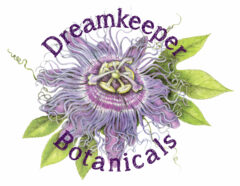Adaptogens for Resilience
Adaptogens are to herbs what bone broth is to food. By that I mean that they are extremely nutritive in small doses and can be used daily. Adaptogens are a category of herbs that have a supportive effect on specific systems of the body and can be used long term. Indeed they are at their best when used long term! With many adaptogens it takes up to three months to really notice the healing effects. Some such as holy basil and ashwagandha do have immediately noticeable effects. The longer we take adaptogens the more they have a chance to nourish us deeply. They have a balancing action and can help remediate symptoms that come from both excess and deficiency. For example ashwagandha might soothe the nerves of a fiery person who tends towards anger. Yet for another person who is lacking energy and is undernourished ashwagandha would likely nurture them and help them find a little extra pep in their step. This is the inherent beauty of many of the adaptogens.

I’m an alchemist at heart so blending various herbs into a formula to support the unique needs of a client is by far one of my favorite things to do. Each adaptogen, like all herbs, have a unique energetic profile. By this I mean that an herb may be warming, cooling, drying, moistening, etc. This is before even considering the intricacies of taste and aroma. As much as I enjoy getting to know the nuances of each plant and how they work together it is not necessary. You can have so much fun and enjoy amazing health benefits by choosing one adaptogen that seems appropriate to you. I’d love to share some with you here, along with some of my favorite ways of using them.

Ashwagandha
This is one of my all time favorite nourishing adaptogens. I have a hard time with change in general and the seasonal change from summer into the colder season is a hard one for me. I find that if I begin incorporating ashwagandha into my daily self care in late August I feel more resilient when the weather turns a bit grey and cold. Ashwagandha is incredible nerve food in general. It is in the nightshade family and while it is rare for this to bother people it is important to note for those that have nightshade sensitivities. I particularly like to use powdered ashwagandha root with some sort of fat as I feel it is easier for the brain and nervous system to assimilate. A tablespoon whisked into some warm coconut milk is delicious with the addition of a bit of cinnamon, turmeric, ginger and a dab of honey. I’ve also added powdered root to the raw cacao treats that I make, so yummy! The root can also be used in soups and decoctions and tincture is effective too.
Reishi Mushroom
Human beings are genetically more similar to mushrooms then plants. Mushrooms nourish us in a very deep way, as they have for time immeasurable. Reishi is a gorgeous mushroom that in our region is most often found on hemlock trees. This would be Ganoderma tsugae. David Winston in his book “Adaptogens: Herbs for Strength, Stamina & Stress Relief” states that our local reishi has immune- enhancing and anti-inflammatory properties but is not as effective as Ganoderma lucidum. I enjoy harvesting and using local plants and fungi so I am thrilled to include our local reishi both whole and ground in my fall and winter cooking. The taste of reishi is earthy, bitter and warming. When I make bone broth I always put in some slices of dried reishi mushroom for the last couple of hours. Tincture and capsules of Ganoderma lucidum are available from many suppliers and when making formulas for clients I do use tincture of this species.

Astragalus
Astragalus is a wonderful immune system tonic for many people. It can be used for people with auto-immune conditions which is very helpful as immune stimulating herbs, like echinacea, are contra-indicated. Not only can astragalus enhance immune system function but it also helps prevent immunosuppresiion caused by chemotherapy. The root is a wonderful addition to soups and broths. Add it to your soup as it simmers, for the last hour, on the stove or in the crockpot. It can be prepared as a decoction where you simmer one ounce for twenty to thirty minutes with eight ounces of water, followed by steeping for another half hour. Astragalus can also be taken as tincture and blends very nicely in formula with other adaptogens.
Codonopsis
This is an herb that has often been referred to as poor man’s ginseng. It is not related to ginseng but it does have a little bit of zippiness like the ginsengs do. Energetically it is moist and slightly warm. It is restorative and very well suited to the respiratory system. If you tend towards bronchitis or pneumonia this is an herb that would be good for you to include in your fall/winter self care routine. Codonopsosis is a root and can be included in bone broths or soups, as well as simmered decoctions. Codonopsis can also be taken as a tincture, alone or blended with other herbs in a formula.
Have fun with your adaptogens and let me know your favorites!
